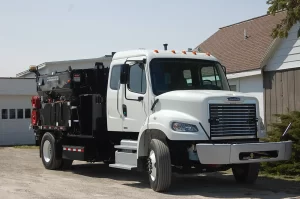Municipalities play a crucial role in maintaining and repairing roads to ensure the safety and convenience of their citizens. To accomplish this, they must invest in high-quality equipment for road repair. This article is a step-by-step guide for municipalities to procure road repair equipment effectively.
Step 1: Assessing Needs and Budget
- Identify the specific requirements for road repair equipment, such as the type of roads, traffic volume, and environmental conditions.
- Establish a realistic budget for equipment procurement, considering the total cost of ownership, including maintenance, repairs, and training.
- The Public Works Director is in charge of this step.
Step 2: Research and Shortlisting of Equipment
- Conduct market research to identify potential road repair equipment suppliers and products.
- Compare the features, benefits, and pricing of various equipment options.
- Shortlist a few suppliers and products based on their suitability for the municipality’s needs.
- The Public Works Director is in charge of this step.
Step 3: Request for Proposals (RFP)
- Prepare a Request for Proposals (RFP) document, outlining the municipality’s requirements, budget, and evaluation criteria.
- Distribute the RFP to the shortlisted suppliers and invite them to submit their proposals.
- The Procurement Officer is in charge of this step.
Step 4: Evaluation and Selection of Equipment
- Evaluate the submitted proposals based on the established criteria and budget constraints.
- Conduct site visits, demonstrations, or reference checks to assess the equipment’s suitability for the municipality’s needs.
- Select the most suitable equipment and supplier based on the evaluation results.
- The Procurement Officer is in charge of this step.





